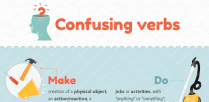I’d like to introduce you to one more way of self-studying a new language. As an example from my experience, I’ll give you the English language.
Once again I want to assure you that everything in our lives is simple. Sometimes the new information asks you for one more effort or a little of additional time. Especially if it concerns language learning.
Let me give you few examples. I’ve got two friends. One of them started to gain weight to lose his anorexic appearance, while another has begun his battle against his extra weight. It’s not about languages, though they are my new students I have met at the gym. The first one has spent a year to hide his skeleton under his muscles, and the second has dedicated only three months to lose 20 kilograms. Maybe it’s wrong from a medical point of view, but we can see a great example of commitment to a goal.
Now I’ll talk about languages. For instance, I’ve studied French for two months to show that I’m worthy of good marks, then I’ve been studying it for 16 years to become a professional, and understand its from a scientific perspective.
If you want to use a dialect to communicate with other people, it’ll take you the same two months to learn a new language (In case you prioritize the time with the studies, and not online game playing.).
What will you certainly be able to say and understand?
You will easily introduce yourself; ask questions on time, direction, feelings, etc.
You’ll understand the speaker when he/she answers you, speaks about the weather (British English is concerned), helps you to find the places, and gives his/her opinion about anything.
Sounds just as my Arabic speaking grade is – the very beginning.
It may appear an embarrassment level of speech if I talk about Arabic. Nevertheless, it would be enough to say something to a passer-by, and get out of Dodge.
So, how to make the most difficult (first) step in your learning?
Find the most used phrases in your native language. E.g.: hello, goodbye, my name is, I am (from, old, profession, fine/nice/O.K., bad), this is, I like/dislike, thank you, sorry, how are you, who are you, how much, where (from, place), and so on.
Then you should find the equivalent of these expressions in the target language.
Stop panic. It’s not the end.
After that step, you should find out their pronunciation/reading.
It might seem laborious if this concerns such languages as Chinese or Arabic, but it’s not. If you’re afraid, try to say the word by letters; it will be less hard from the first start.
As soon as you get the correct pronunciation, give it a try and speak to your friends or people from Google+ Hangouts.
Only after this, you can allow yourself to be afraid and start polishing your knowledge, and accents.
In case you don’t have any possibility to talk to someone and to learn either your speech is correct or not exactly, there is one more way.
You’ve learnt few phrases to navigate in a new situation in a different country.
Your next step will be to listen to these constructions and repeat them better than the best talking parrot. Don’t be shy; I used this technique when learning each language. Me too, I also felt stupid, strange, and finally similar to the native speaker.
Now you can once again try to speak and even go abroad to practise your new and better skills.
I’m sure that you’ll love the language you’ve started to learn. You can plug in the further studies only after that feeling. Without it, you’ll have to hire a special teacher with discipline (it used to be translated as a stick) to give you motivation (to beat your lazy behind).
So give it a try, and you’ll succeed if you don’t stop!







